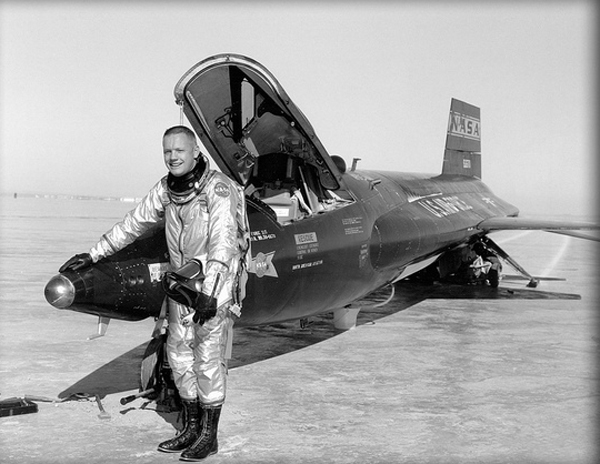The wisdom of Neil Armstrong


There are moments in history that make us feel bigger than ourselves. The moment Neil Armstrong set foot on the moon in 1969 was one of them.
Decades later, his "one small step" remains etched on the tongue of students from coast to coast. On Saturday, Armstrong passed away as a result of complications with a heart procedure. The self-described "nerdy engineer" was 82.
The reaction to the news of Armstrong's passing was swift and heartfelt. From Arianna Huffington to Snoop Dogg to Mandy Moore, Twitter was abuzz Saturday afternoon with wisdom from the face, and arguably the conscience, of American spaceflight.
Like Oscar Wilde before him and Ai Weiwei who came long after, Armstrong had a flair for the perfectly-phrased sentence.
"You'd ask him a question and he would just stare at you with those pale blue eyes of his," author Tom Wolfe wrote in his 2001 volume The Right Stuff, "And you'd start to ask the question again, figuring that he hadn't understood, and -- click -- out of his mouth would come forth a sequence of long, quiet, perfectly formed, precisely thought-out sentences, full of anisotropic functions and multiple-encounter trajectories or whatever else was called for."
For the average American, however, it wasn't the multiple-encounter trajectories that stuck; it was the poetry. Here is some of the poetry from the one man who had the chance to see who we are from thousands of miles away:
"It suddenly struck me that that tiny pea, pretty and blue, was the Earth. I put up my thumb and shut one eye, and my thumb blotted out the planet Earth. I didn't feel like a giant. I felt very, very small."
"Science has not yet mastered prophecy. We predict too much for the next year and yet far too little for the next 10."
"I hope you become confortable with the use of logic wihout being deceived into concluding that logic will inevitably lead you to the correct conclusion."
"Pilots take no special joy in walking. Pilots like flying."
"I think we're going to the moon because it's in the nature of the human being to face challenges. It's by the nature of his deep inner soul... we're required to do these things just as salmon swim upstream."
Photos: JamesVaughan/Flickr, Fr. Dougal McGuire/Flickr
This post was originally published on Smartplanet.com